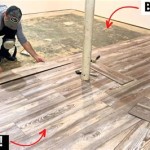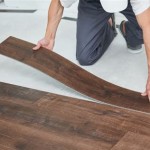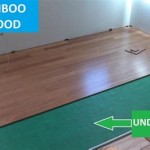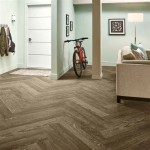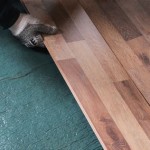Can You Put Vinyl Flooring on Concrete Outside?
Transforming your outdoor concrete with vinyl flooring is possible, but it requires meticulous consideration. By understanding the specifics of outdoor installation and adhering to proper techniques, you can achieve a durable and aesthetically pleasing vinyl floor that enhances your outdoor space.
Compatibility of Vinyl Flooring and Concrete
Not all vinyl flooring is suitable for outdoor applications. Solid vinyl tiles and planks are the most durable and withstand weather conditions. Solid vinyl is made entirely of waterproof PVC (polyvinyl chloride), ensuring resistance to moisture, fading, and cracking.
Preparing the Concrete Surface
The concrete surface must be smooth, level, and free of cracks. Clean the concrete thoroughly with a pressure washer or cleaner to remove dirt, grease, and other contaminants. Repair any cracks or holes with a concrete patch or self-leveling compound.
Applying Adhesive
Use an adhesive specifically designed for outdoor vinyl flooring. Spread the adhesive evenly onto the concrete surface using a notched trowel. Follow the manufacturer's instructions for drying time before installing the vinyl flooring.
Installing the Flooring
Starting from one corner, carefully align the vinyl tiles or planks and press them into the adhesive. Use a flooring roller to ensure proper adhesion. Stagger the joints between rows to increase durability.
Dealing with Seams
For seams between tiles or planks, apply a silicone-based caulk specifically designed for outdoor use. Fill the seams completely and smooth the caulk with your finger or a putty knife. Allow the caulk to dry and cure before exposing it to heavy foot traffic.
Protecting the Flooring
To extend the life of your outdoor vinyl flooring, follow these tips: Avoid dragging heavy objects across the floor; use floor protectors under furniture; sweep or vacuum regularly to remove dirt and debris; and clean with a mild detergent and water as needed.
Benefits of Outdoor Vinyl Flooring
Vinyl flooring offers numerous benefits for outdoor applications:
- Durability: Vinyl flooring is resistant to wear, moisture, and fading, making it ideal for outdoor conditions.
- Low Maintenance: Vinyl flooring is easy to clean and maintain, requiring only occasional sweeping or vacuuming.
- Variety of Options: Vinyl flooring comes in a wide range of styles, colors, and textures, allowing you to customize your outdoor space.
- Comfort: Vinyl flooring is softer and more comfortable to walk on than concrete.
- Affordability: Vinyl flooring is a cost-effective option for upgrading your outdoor space.
Conclusion
Installing vinyl flooring on concrete outside is achievable with careful planning and proper techniques. By following the steps outlined above, you can create a beautiful and functional outdoor space that will withstand the elements and provide years of enjoyment.

Can You Put Vinyl Flooring On A Deck

How To Prepare A Concrete Floor For Vinyl Flooring Parrys

How To Lay Deck Flooring On A Concrete Patio The Home

Outdoor Flooring Over Grass Or Dirt Interlocking Tiles

2024 Outdoor Flooring Trends 10 Ways To Upgrade Your Space

4 Ways To Prevent Moisture Damage Under Luxury Vinyl Flooring Floor Trends Installation

Can You Put Vinyl Flooring On A Deck

Deck Waterproofing Blog Articles By Tufdek

Outdoor Flooring Options For Style And Comfort 10 Ideas 2024

Londeck Sierra Commercial Outdoor Vinyl Flooring Per Li Foot
See Also
